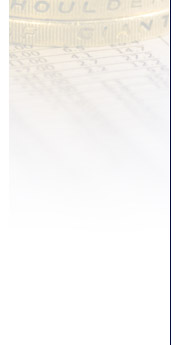Income Tax and Personal Savings
|
||||||||||||||||||||||||||||||||||||||||||||||||||||||||||||||||||||||||||||||||||||
Individual Savings Accounts (ISAs)
The Chancellor has already announced that the tax advantages of ISAs are to become permanent, with a guaranteed overall annual investment limit of at least £7,000. With effect from 6 April 2008, there will be various reforms to the ISA regime, including removal of the Mini/Maxi distinction. After this date an individual will be able to subscribe to either a cash ISA, a stocks and shares ISA or both.
From 6 April 2008 the subscription limits to the ISA will be increased, which will mean that an individual can subscribe up to £3,600 per tax year to a cash ISA and up to £7,200 per tax year into a stocks and shares ISA subject to an overall limit of £7,200.
The regulations will allow transfers from cash subscribed in previous tax years into stocks and shares without affecting current year investment limits.
Changes to the personal tax system
The Chancellor announced the following changes:
- removing the starting rate and cutting the basic rate of income tax from 22% to 20% in April 2008, creating a simpler structure of two rates: a 20% basic rate and a 40% higher rate;
- increasing the upper earnings limit for national insurance by £75 a week above indexation in April 2008 and, from April 2009, fully aligning it with the higher rate threshold - the point at which taxpayers start to pay the higher rate of income tax, further simplifying the system;
- raising the aligned higher rate threshold and upper earnings limit by £800 a year above indexation in April 2009;
- increasing the higher personal allowances for those aged 65 or over by £1,180 above indexation in April 2008, which is expected by the Chancellor to remove 580,000 pensioners from paying tax. By April 2011, the Chancellor expects that no pensioner aged 75 or over will pay any tax until their income reaches £10,000;
- increasing the child element of the Child Tax Credit by £150 a year above earnings indexation in April 2008, raising the child element to £2,080 a year;
- increasing the threshold for Working Tax Credit by £1,200 to £6,420 in April 2008;
- raising the withdrawal rate on tax credits by 2% to 39%; and
- increasing the weekly rate of Child Benefit for the eldest child to £20 in April 2010.
Pension tax amendments
Legislation will be introduced in Finance Bill 2007 to amend the pension tax rules with effect from 6 April 2006. Minor benefits provided by former employers for retired former employees will be excluded from taxation. Broadly, the additional exclusions will relate to continued provision of accommodation and related removal expenses, welfare counselling, recreational benefits, annual parties and similar functions, equipment for disabled former employees, which, with necessary differences to reflect the situation of retired people, mirror exemptions conferred on employees. Exclusions will also relate to the writing of wills and benefits which were first provided before 6 April 1998.
The Finance Bill will also introduce measures removing an individual’s entitlement to tax relief on any pension contributions that are used to pay premiums under personal term assurance policies. Contributions to policies in existence under conditions specified in the legislation will continue to attract relief unless the policy is varied outside its original terms so as to increase the sum assured or lengthen the term. The measures will not affect the relief available for contributions paid by employers.
Homes abroad owned through a company
Legislation will be introduced to ensure that individuals who have bought or will buy a home abroad through a company will not face a benefit in kind tax charge for any private use of the property. The measure will be subject to certain qualifying conditions being satisfied and will have retrospective effect.
Self assessment tax return filing dates
For 2007/08 tax returns and those for subsequent years, there will be two separate filing dates. For paper returns, there will be a new date of 31 October (for tax year 2007/08 that will be 31 October 2008). For returns filed online, the date will remain at 31 January (for tax year 2007/08 that will be 31 January 2009). For taxpayers filing paper returns who want HMRC to calculate their tax liability for them, the cut off date will move from 30 September to 31 October to align with the new paper return filing deadline. A calculation of tax liability is automatically provided when a return is filed online.
Consequential changes will also be made to revise the period during which a return can be amended. Currently, the latest possible date is linked to the first anniversary of the filing date. The introduction of differential filing dates for different methods of filing a return would advance this date for those filing by paper. To avoid disadvantaging those who file early, the amendment window date will be linked to the 31 January anniversary date for all paper and online returns. However, the tax enquiry window will be linked to the date the return is received by HMRC. The enquiry window will close one year after delivery of the return. So where a return is received before the filing deadline the enquiry window will close earlier than under current legislation. A similar change will apply to most companies who complete company tax returns for accounting periods ending after 31 March 2008.
Penalties
Legislation will be introduced in Finance Bill 2007 to provide a single new penalty regime for incorrect returns for income tax, corporation tax, PAYE, NIC and VAT where the penalty will be determined by the amount of tax understated, the nature of the behaviour giving rise to the understatement and the extent of disclosure by the taxpayer. It introduces a new concept of suspended penalties.


